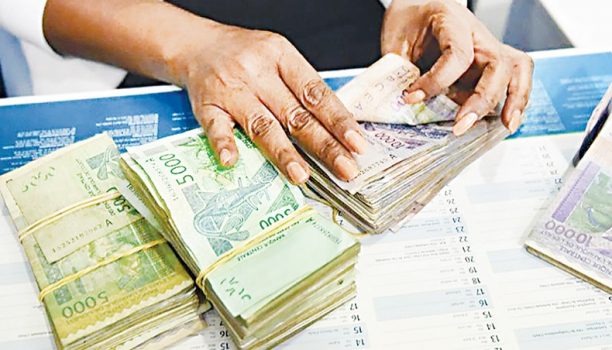 Eight Francophone West African countries on Saturday agreed to change the name of their common currency to Eco, severing the CFA franc’s links to former colonial ruler, France.
Eight Francophone West African countries on Saturday agreed to change the name of their common currency to Eco, severing the CFA franc’s links to former colonial ruler, France.
The CFA franc was initially pegged to the French franc and has been linked to the Euro for about twenty years..
The countries, Benin, Burkina Faso, Guinea-Bissau, Ivory Coast, Mali, Niger, Senegal and Togo who are former French colonies with the exception of Guinea Bissau currently use the currency.
The development was announced by Ivorian President, Alassane Ouattara during a visit by French President, Emmanuel Macron to Ivory Coast, the world’s top cocoa producer and France’s former main colony in West Africa.
Speaking in the country’s economic capital, Abidjan, Ouattara announced three major changes which included a change of name of the currency, adding that the other countries would stop holding 50 percent of the reserves in the French Treasury as well as the ‘withdrawal of French governance’ in any aspect related to the currency.
The CFA franc’s value was moored to the Euro after its introduction two decades ago at a fixed rate of 655.96 CFA francs to one Euro.
Although the Bank of France holds half of the currency’s total reserves, the country does not make money on its deposits stewardship but annually pays a ceiling interest rate of 0.75 percent to member states.
The arrangement also guarantees an unlimited convertibility of CFA francs into Euros and facilitates inter-zone transfers.
The notes and coins of the CFA francs created in 1945 are printed and minted at a Bank of France facility in the southern town of Chamalieres. They were seen by many as a sign of French interference in its former African colonies even after their independence.
The Economic Community of West African States ECOWAS) had earlier on Saturday urged its members to push on with efforts to establish a common currency which is optimistically slated to be launched in 2020.

FG Pays ₦205bn Electricity Subsidy, DisCos’ Remittance Performance Declines
FG Initiates Disbursement Process for Presidential Conditional Grant Programme
Dangote Petroleum Refinery Announces Significant Reduction In Diesel Price
Nigeria’s Headline Inflation Hits 33.20% In March 2024 –NBS